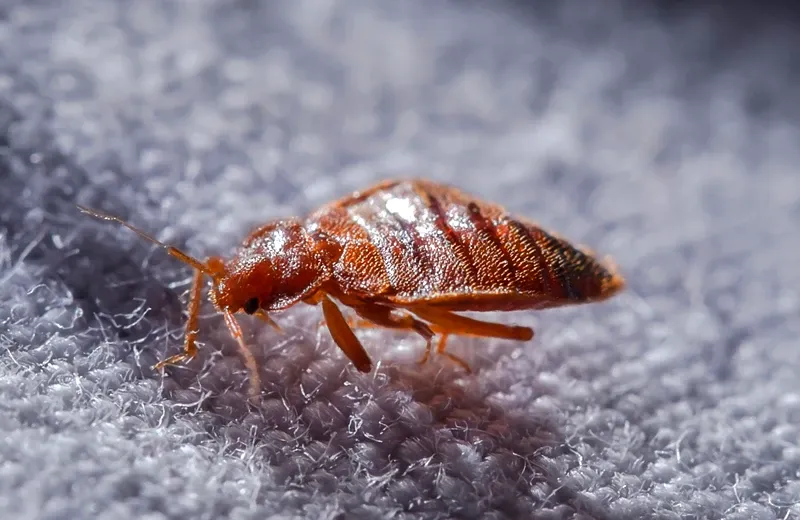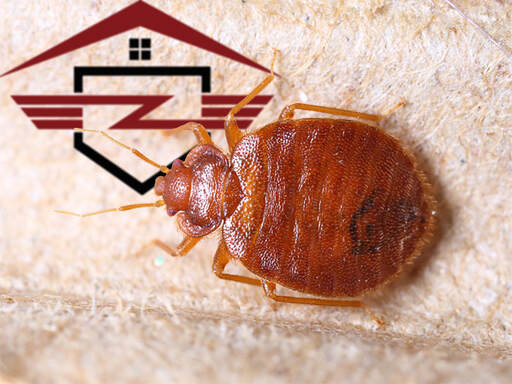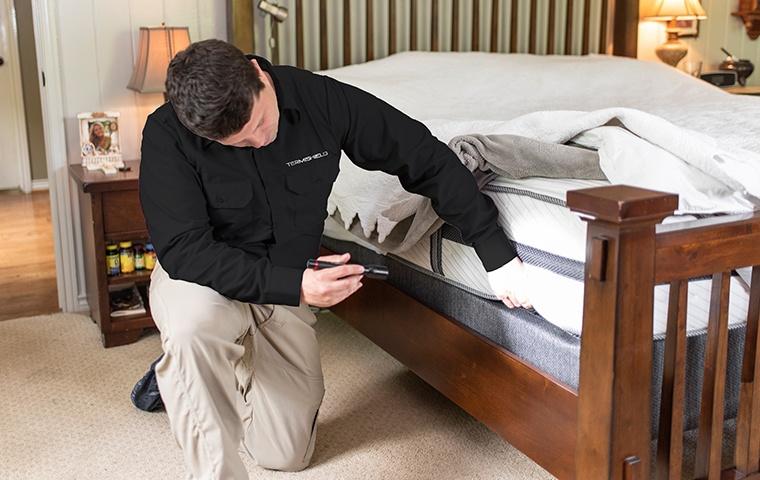Top Kings Cincinnati Bug Control Services: Exterminator Proficiency
Top Kings Cincinnati Bug Control Services: Exterminator Proficiency
Blog Article
Kinds Of Insect Control: Which Approach Is Right for Your Problem?
When faced with a bug problem, the selection of a proper method for parasite control is critical in effectively handling the circumstance. From chemical treatments to biological options, there exists a series of techniques that can be used to resolve various types of insects. Each method comes with its own set of benefits and considerations, making the decision-making procedure a nuanced one. Understanding the subtleties of each method and reviewing their compatibility with the particular insect infestation handy is important for accomplishing long-term success in parasite administration. By exploring the different kinds of insect control approaches offered, people can make enlightened choices tailored to their distinct situations, making sure a much more lasting and reliable result in pest eradication.
Chemical Insect Control
Chemical pest control includes making use of synthetic or normally derived chemicals to handle and remove pest populaces successfully. This approach is generally utilized in agriculture, forestry, and property settings to fight a variety of insects, including weeds, pests, and rodents. Using chemical pesticides can provide quick and targeted remedies to pest invasions, making it a preferred choice for lots of individuals and companies.
Among the key benefits of chemical bug control is its capacity to swiftly get rid of pests, reducing the threat of damage to crops, residential property, and human wellness. By utilizing specific chemicals that target particular pests, this technique can properly control infestations while minimizing injury to helpful organisms and the environment when used appropriately.
However, the usage of chemical parasite control also elevates issues regarding potential unfavorable results on non-target types, water resources, and human health. It is important to comply with security standards, use chemicals properly, and take into consideration alternative parasite control techniques to lessen these threats and ensure lasting bug monitoring practices.
Biological Insect Control
Biological bug control, also known as biocontrol, makes use of living microorganisms to manage and decrease pest populations naturally. By utilizing the bug's all-natural predators or pathogens, biological pest control supplies a sustainable and environmentally pleasant service to pest management.

Mechanical Pest Control
Utilizing hands-on and physical methods to manage pest populations, mechanical bug control uses an alternate strategy that does not depend on using living organisms or synthetic chemicals. This method includes making use of barriers, traps, or various other gadgets to literally prevent or get rid of parasites. By obstructing insect entry factors or establishing catches to capture them, mechanical bug control can efficiently lower invasions without presenting chemicals into the environment.
One usual instance of mechanical bug control is the usage of mesh displays on doors and windows to avoid insects from getting in structures. This easy yet effective technique functions as a physical obstacle, keeping parasites out while allowing for proper air flow. Furthermore, gadgets like mousetraps, fly swatters, and ultrasonic repellents fall under the mechanical bug control classification.
While mechanical insect control techniques can be labor-intensive and require normal surveillance and maintenance, they use a sustainable and environmentally pleasant remedy for handling insect infestations. By integrating various mechanical methods, property proprietors can produce a detailed insect control approach that reduces reliance on chemical pesticides.
Physical Parasite Control

Some common physical insect control approaches include making use of obstacles such terminator termite as nets or displays to avoid insect entrance, traps to catch and remove bugs, and hand-picking to literally get rid of insects from plants or frameworks. Furthermore, techniques like warmth treatments can be used to manage pests like bed pests by raising the temperature to degrees that are lethal to the bugs.
Physical bug control is particularly valuable in integrated pest management (IPM) strategies, where multiple parasite control techniques are combined for efficient bug management while lessening the use of chemicals. By using physical insect control methods, individuals can successfully deal with bug problems with minimal environmental influence.
Integrated Pest Monitoring
When applying physical parasite control techniques as component of parasite management methods, Integrated Insect Administration (IPM) becomes an extensive method that leverages various techniques to successfully manage pest populaces. IPM concentrates on long-term avoidance of insects via a combination of organic, social, physical, and chemical tools tailored to specific parasite issues. By integrating numerous control strategies, IPM intends to reduce the threats linked with insects while likewise lowering reliance on chemical remedies.
One key aspect of IPM is the focus on monitoring and assessing pest populations to figure out one of the most proper control techniques. This positive technique permits early intervention and targeted methods, causing a lot more effective bug management. Furthermore, IPM advertises eco-friendly techniques by prioritizing non-chemical control approaches and only making use of chemicals as a last hope.
Verdict

By making use of the pest's natural killers or pathogens, organic bug control provides a eco pleasant and lasting service to pest monitoring. - Kings pest control cincinnati oh
Utilizing physical and hand-operated approaches to take care of parasite populations, mechanical insect control uses an alternative strategy that does not count on the usage of living microorganisms or synthetic chemicals.A reliable strategy to managing bug populaces without depending on chemical or organic methods involves the usage of physical parasite control methods.When executing physical bug control approaches as part of pest monitoring strategies, Integrated Parasite Administration (IPM) emerges as a detailed approach that leverages different strategies to properly regulate pest populations. Chemical insect control involves the use of pesticides, biological insect control makes use of natural killers, mechanical pest control includes physical obstacles, physical insect control consists of capturing or removing parasites, and integrated bug administration integrates multiple techniques for a holistic technique to pest control.
Report this page